FAMOUS AUTHORS

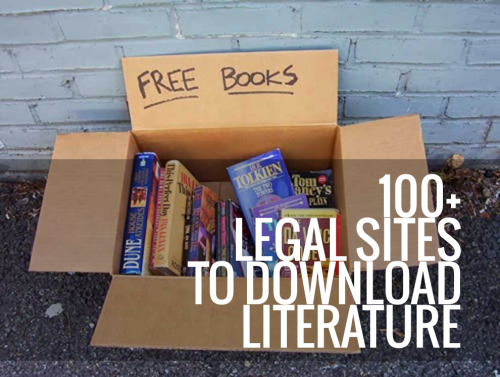
FAMOUS AUTHORS
Classic Bookshelf: This site has put classic novels online, from Charles Dickens to Charlotte Bronte.
The Online Books Page: The University of Pennsylvania hosts this book search and database.
Project Gutenberg: This famous site has over 27,000 free books online.
Page by Page Books: Find books by Sir Arthur Conan Doyle and H.G. Wells, as well as speeches from George W. Bush on this site.
Classic Book Library: Genres here include historical fiction, history, science fiction, mystery, romance and children’s literature, but they’re all classics.
Classic Reader: Here you can read Shakespeare, young adult fiction and more.
Read Print: From George Orwell to Alexandre Dumas to George Eliot to Charles Darwin, this online library is stocked with the best classics.
Planet eBook: Download free classic literature titles here, from Dostoevsky to D.H. Lawrence to Joseph Conrad.
The Spectator Project: Montclair State University’s project features full-text, online versions of The Spectator and The Tatler.
Bibliomania: This site has more than 2,000 classic texts, plus study guides and reference books.
Online Library of Literature: Find full and unabridged texts of classic literature, including the Bronte sisters, Mark Twain and more.
Bartleby: Bartleby has much more than just the classics, but its collection of anthologies and other important novels made it famous.
Fiction.us: Fiction.us has a huge selection of novels, including works by Lewis Carroll, Willa Cather, Sherwood Anderson, Flaubert, George Eliot, F. Scott Fitzgerald and others.
Free Classic Literature: Find British authors like Shakespeare and Sir Arthur Conan Doyle, plus other authors like Jules Verne, Mark Twain, and more.
TEXTBOOKS
Textbook Revolution: Find biology, business, engineering, mathematics and world history textbooks here.
Wikibooks: From cookbooks to the computing department, find instructional and educational materials here.
KnowThis Free Online Textbooks: Get directed to stats textbooks and more.
Online Medical Textbooks: Find books about plastic surgery, anatomy and more here.
Online Science and Math Textbooks: Access biochemistry, chemistry, aeronautics, medical manuals and other textbooks here.
MIT Open Courseware Supplemental Resources: Find free videos, textbooks and more on the subjects of mechanical engineering, mathematics, chemistry and more.
Flat World Knowledge: This innovative site has created an open college textbooks platform that will launch in January 2009.
Free Business Textbooks: Find free books to go along with accounting, economics and other business classes.
Light and Matter: Here you can access open source physics textbooks.
eMedicine: This project from WebMD is continuously updated and has articles and references on surgery, pediatrics and more.
MATH AND SCIENCE
FullBooks.com: This site has “thousands of full-text free books,” including a large amount of scientific essays and books.
Free online textbooks, lecture notes, tutorials and videos on mathematics: NYU links to several free resources for math students.
Online Mathematics Texts: Here you can find online textbooks likeElementary Linear Algebra and Complex Variables.
Science and Engineering Books for free download: These books range in topics from nanotechnology to compressible flow.
FreeScience.info: Find over 1800 math, engineering and science books here.
Free Tech Books: Computer programmers and computer science enthusiasts can find helpful books here.
CHILDREN’S BOOKS
byGosh: Find free illustrated children’s books and stories here.
Munseys: Munseys has nearly 2,000 children’s titles, plus books about religion, biographies and more.
International Children’s Digital Library: Find award-winning books and search by categories like age group, make believe books, true books or picture books.
Lookybook: Access children’s picture books here.
PHILOSOPHY AND RELIGION
Bored.com: Bored.com has music ebooks, cooking ebooks, and over 150 philosophy titles and over 1,000 religion titles.
Ideology.us: Here you’ll find works by Rene Descartes, Sigmund Freud, Karl Marx, David Hume and others.
Free Books on Yoga, Religion and Philosophy: Recent uploads to this site include Practical Lessons in Yoga and Philosophy of Dreams.
The Sociology of Religion: Read this book by Max Weber, here.
Religion eBooks: Read books about the Bible, Christian books, and more.
PLAYS
ReadBookOnline.net: Here you can read plays by Chekhov, Thomas Hardy, Ben Jonson, Shakespeare, Edgar Allan Poe and others.
Plays: Read Pygmalion, Uncle Vanya or The Playboy of the Western World here.
The Complete Works of William Shakespeare: MIT has made available all of Shakespeare’s comedies, tragedies, and histories.
Plays Online: This site catalogs “all the plays [they] know about that are available in full text versions online for free.”
ProPlay: This site has children’s plays, comedies, dramas and musicals.
MODERN FICTION, FANTASY AND ROMANCE
Public Bookshelf: Find romance novels, mysteries and more.
The Internet Book Database of Fiction: This forum features fantasy and graphic novels, anime, J.K. Rowling and more.
Free Online Novels: Here you can find Christian novels, fantasy and graphic novels, adventure books, horror books and more.
Foxglove: This British site has free novels, satire and short stories.
Baen Free Library: Find books by Scott Gier, Keith Laumer and others.
The Road to Romance: This website has books by Patricia Cornwell and other romance novelists.
Get Free Ebooks: This site’s largest collection includes fiction books.
John T. Cullen: Read short stories from John T. Cullen here.
SF and Fantasy Books Online: Books here include Arabian Nights,Aesop’s Fables and more.
Free Novels Online and Free Online Cyber-Books: This list contains mostly fantasy books.
FOREIGN LANGUAGE
Project Laurens Jz Coster: Find Dutch literature here.
ATHENA Textes Francais: Search by author’s name, French books, or books written by other authors but translated into French.
Liber Liber: Download Italian books here. Browse by author, title, or subject.
Biblioteca romaneasca: Find Romanian books on this site.
Bibliolteca Virtual Miguel de Cervantes: Look up authors to find a catalog of their available works on this Spanish site.
KEIMENA: This page is entirely in Greek, but if you’re looking for modern Greek literature, this is the place to access books online.
Proyecto Cervantes: Texas A&M’s Proyecto Cervantes has cataloged Cervantes’ work online.
Corpus Scriptorum Latinorum: Access many Latin texts here.
Project Runeberg: Find Scandinavian literature online here.
Italian Women Writers: This site provides information about Italian women authors and features full-text titles too.
Biblioteca Valenciana: Register to use this database of Catalan and Valencian books.
Ketab Farsi: Access literature and publications in Farsi from this site.
Afghanistan Digital Library: Powered by NYU, the Afghanistan Digital Library has works published between 1870 and 1930.
CELT: CELT stands for “the Corpus of Electronic Texts” features important historical literature and documents.
Projekt Gutenberg-DE: This easy-to-use database of German language texts lets you search by genres and author.
HISTORY AND CULTURE
LibriVox: LibriVox has a good selection of historical fiction.
The Perseus Project: Tufts’ Perseus Digital Library features titles from Ancient Rome and Greece, published in English and original languages.
Access Genealogy: Find literature about Native American history, the Scotch-Irish immigration in the 19th and 20th centuries, and more.
Free History Books: This collection features U.S. history books, including works by Paul Jennings, Sarah Morgan Dawson, Josiah Quincy and others.
Most Popular History Books: Free titles include Seven Days and Seven Nights by Alexander Szegedy and Autobiography of a Female Slave by Martha G. Browne.
RARE BOOKS
Questia: Questia has 5,000 books available for free, including rare books and classics.
ARTS AND ENTERTAINMENT
Books-On-Line: This large collection includes movie scripts, newer works, cookbooks and more.
Chest of Books: This site has a wide range of free books, including gardening and cooking books, home improvement books, craft and hobby books, art books and more.
Free e-Books: Find titles related to beauty and fashion, games, health, drama and more.
2020ok: Categories here include art, graphic design, performing arts, ethnic and national, careers, business and a lot more.
Free Art Books: Find artist books and art books in PDF format here.
Free Web design books: OnlineComputerBooks.com directs you to free web design books.
Free Music Books: Find sheet music, lyrics and books about music here.
Free Fashion Books: Costume and fashion books are linked to the Google Books page.
MYSTERY
MysteryNet: Read free short mystery stories on this site.
TopMystery.com: Read books by Edgar Allan Poe, Sir Arthur Conan Doyle, GK Chesterton and other mystery writers here.
Mystery Books: Read books by Sue Grafton and others.
POETRY
The Literature Network: This site features forums, a copy of The King James Bible, and over 3,000 short stories and poems.
Poetry: This list includes “The Raven,” “O Captain! My Captain!” and “The Ballad of Bonnie and Clyde.”
Poem Hunter: Find free poems, lyrics and quotations on this site.
Famous Poetry Online: Read limericks, love poetry, and poems by Robert Browning, Emily Dickinson, John Donne, Lord Byron and others.
Google Poetry: Google Books has a large selection of poetry, fromThe Canterbury Tales to Beowulf to Walt Whitman.
QuotesandPoem.com: Read poems by Maya Angelou, William Blake, Sylvia Plath and more.
CompleteClassics.com: Rudyard Kipling, Allen Ginsberg and Alfred Lord Tennyson are all featured here.
PinkPoem.com: On this site, you can download free poetry ebooks.
MISC
Banned Books: Here you can follow links of banned books to their full text online.
World eBook Library: This monstrous collection includes classics, encyclopedias, children’s books and a lot more.
DailyLit: DailyLit has everything from Moby Dick to the recent phenomenon, Skinny Bitch.
A Celebration of Women Writers: The University of Pennsylvania’s page for women writers includes Newbery winners.
Free Online Novels: These novels are fully online and range from romance to religious fiction to historical fiction.
ManyBooks.net: Download mysteries and other books for your iPhone or eBook reader here.
Authorama: Books here are pulled from Google Books and more. You’ll find history books, novels and more.
Prize-winning books online: Use this directory to connect to full-text copies of Newbery winners, Nobel Prize winners and Pulitzer winners.
More Posts from Arieso226 and Others

Mean World Syndrome
NO. 1
Mean World Syndrome is a theory the sociologist George Gerbner, creator of the Cultural Indicator’s Project, where three quarters of Americans believe in high level of crime, even though statistics show it is low. In the media, there is too much sex and violence, more so than the average person will ever see a day in their lives, and it has become repetitive, too routine, as the storytelling of violence seem ‘normal’. Since 1995, the demand for guns to ‘protect themselves’ has been at an all time high, and so is the fear, fear that everyone in the world is a suspect. But most importantly, is the image of the bad guys coming to get them. 2/3 of Americans get their information from the media, mostly the news, which creates negative stereotypes of minorities, who are seen as violent and aggressive.
NO. 2 Take for instance, Latina’s, who make up 15% in population in America, are portrayed by the media as aggressors, seen as ‘rapists and gangbangers’ or ‘murderers’. They are also the subject of illegal immigration, which all together creates dehumanizing effects. Then, there’s the vilification of Arabs and Muslims, as bloodthirsty terrorists, that are linked to violence and terror, and the subject of torture/ing of these people is ‘okay as long as it’s a good guy doing it’’. 39% of Americans actually believes that American-born Muslims are not loyal to the country’s ideals, and so not loyal to them. And finally, African-Americans are twice as likely to be seen as perpetrators. In the media, it is harmful showing black people as great middle/class, successful people, then as violent and aggressive in the next slide, as if to say some people choose that type of lifestyle, that they are simply a product of their environment. White people are five times more than likely to be criminalized by whites than black people, yet it’s not white people being shown almost everyday on the news for braking crimes.
The result of all this is the active fear in everyday Americans that makes us less likely to be compassionate, and more hardened to anyone and everyone. It also increases a high demand for national security, and believing that we have to lock these ‘criminals in cages where they belong.’
Cultivation Theory is the examination of the long term effects of television. Media cultivates a set of values, meanings, expectations, understanding, etc. which is the culture now in the modern century. Mass media replacement of community-based storytellers, it advances corporate interests (increasing profits and sales) since Americans spend a lot of time with the media. The effects are becoming more systemic and all encompassing. We need to start asking questions, like who is being represented in the media, who is the victim, and who is in the cast, and what are their fates. Who is generally casted as the good guy, and who is casted as the bad guy. We can look to the Media Database (IMDb) to see who is making the cultural object, and what is the main subject. Mean World Syndrome relates to this theory, through intersections of race, gender, ethnicity, criminal justice and the international border. We need to understand who is creating these TV shows/films, since America has such a global reach, it attracts the largest audience. Sociologists are not condemning media, but the constant repetition of ‘happy violence’—where in the film, show, or media, the good guy faces has a challenge, fights and action and explosions reoccurs, he stops the evil doer, saves the damsel, and the day is saved! It’s boring, cliché and the same story over and over again— and the various franchises and storylines springing from these corporations because it slows down progress and keeps negative stereotypes alive, some of them extremely damaging.
The Origins of Fairies
Fairies are magical creatures, and all manners of children are obsessed with just the mention of them. Not to mention the Disney-ified version of fairies like ‘‘Tinkerbell’’. But where or what was the was the origination of ‘fairies’? How did people come to call these magical spirits ‘fairies’? And where did the word ‘fairy’ come from, and how has the meaning change over the centuries?

Well, the first question, what are the origins of fairies, or ‘fairyland’? Fairies are most widely mentioned in Gaelic literature, meaning Ireland, and are vastly integral to the people and culture. ‘Ireland is the country of Fairies. Fully to understand the Irish temperament, therefore it is necessary to know Ireland’s Fairy lore. Since the Fairies are mentioned first and most frequently in the literature written in the Irish languages of centuries ago, we must turn for information to the great mass of poems and stories from the twelfth to the sixteenth century. The Fairies of ancient Ireland belonged to a race known as ‘Tuath De Danaan’ came to Ireland, legend says from the ‘northern isles of the world, where they had been learning lore and magic and druidism and wizardry and cunning until they surpassed the sages of the arts of heathendom.’ ’’

Why then, have the mention of fairies been connected to the feminine, and feminine ideals? Because beauty standards rely heavily on gender, and ‘fairies’ with their magical art forms, have become twisted and their original ‘conquering form’ forgotten, and what better way to reinforce this than by using children’s fairy tales, which emphasizing women’s beauty and passivity, which serve to legitimize the dominant gendered system. ‘‘Research since the early 1970s has shown that children’s literature contains explicit and implicit messages about dominant power structures in society, especially those concerning gender. Fairy tales written during the eighteenth and nineteenth were intended to teach girls and young women how to become domesticated, respectable, and attractive to a marriage partner and to teach boys and girls appropriated gendered values, and attitudes.’’


Finally, where did the word ‘fairie’ come from? ‘‘They were at first, as established up above, called the ‘De Dannans’, who came to conquer those who were already in possession of Ireland, but were overcome with the ‘Mileasans’, a mythical race said to be the ancestors of modern Irishmen, and settled in a seperate part of the island, retiring into the green hills, where they required a new name: People of the Fairy Mound, or Aes Side (Ace Shithe, or Shee). As clouds are shot through with lightning, so is early Irish literature with accounts of invaders who became the Fairy Folk. ‘In Ireland, the Fairies have never been forgotten’: Brian Merriman, the last Gaelic poet of prominence, speaks of them as the treasure of his country in time of trouble, and Patrick MacGill, the Donegal poet, expressed the same idea when, amid the terrors of the battlefield, he wrote, ‘If we forget the Fairies,
And tread upon the rings,
God will perchance forget us,
And think of other things.
When we forget you, Fairies,
Who guard our spirits’ light:
God will forget the morrow,
And Day forget the Night’’.
.

Sometimes you’re just an introverted loser who sits alone in your room with a cup of tea and a book, has fantasies about morally grey fictional characters, is severely touch starved with a completely fucked up sleep schedule and slowly declining mental health.
The Study of Creation Stories
In every culture on Earth, people make up creation origins. I say origins because I am aware that many people still believe in their individual God, OR gods, and therefore, in their own creation origins. The purpose of these stories is is to reassure us, humans, that we are not alone, that we were created to have some purpose, and that there was a reason we are alive here today. Creation myths exist because every culture has one, and that is to say that some individuals created us for a reason. Creation myths can influence how the history of the world or society is viewed by the type of story the creation myth has originated from, based on how the society is living.

NO. 2
Some of the similarities among these creation myths are that in the beginning, the world is dark, but some deity or animal comes and sets the world with light and color. The deity sets to work and makes the world with animals, man, mountains, rivers, etc. In the Aboriginal Creation Origin, an endless tall pole is coming out from the ground and emerges from the land in the time before time. At the end of the pole, Ka-ro-ra, the Creator God was the one who was sleeping at the end of the pole. Ka-ro-ra produces sons by dreaming of them, searching for fruit. The Greeks made it so that the Earth was a battleground, devoid of life from the early battle of the gods, until the titan Prometheus created humans out of clay, modeling them in the shape of the gods. Except that leads to the horrible end for him, when he asked the king, Zeus for fire. As most people know, Prometheus was chained to a rock with an eagle to pick out of his liver for all eternity for stealing fire to give to the humans.

NO. 3
Creation stories are entertaining to hear, regardless if you believe them or not. Before modern technology, people only had their imagination and word of mouth to get them through the day. That’s why archeologists deduced early humans’ cave drawings and stories as ways that show that they were there, that they should be remembered and celebrated. Each creation's origin story is designed with each society's culture and views in mind. In the Inca myth, it mentions planting and plowing fields, which is what the men do, and the art of weaving and cooking, which is what the women do. Each person comes together, pro-creates, and teaches this to their children, and the cycle repeats.
Happy Easter everybody!
Krampus, the legend!
During the Christmas season, every young boy and girl awaits their presents and gifts with eagerness, hoping for Santa to make their way to their homes. The saying, you better watch out, you better not cry, you better not pout is the official song for Santa Claus as he is checking his list for all the good boys and girls. But for those who are naughty children, the invention of the famed horned goat Krampus who works together with St. Nick.

NO. 2
Created in Eastern European folklore, Krampus, meaning ‘claw’, is depicted as a horned, half-demon like monster who terrorizes naughty children, hitting them and beating them with whips, other versions having him with chains, sometimes shaking them to scare the children, equipped with a sack or a basket strapped to his back, to cart off the children chosen to be either eaten or dragged to Hell. He even has a holiday dedicated just to him, celebrated in Germany and now, because of the film, in America as well, called Krampusnacht, or Krampus Night, on December 6. In this long and very funny tradition, spectators dressed up as Krampus appears in the streets, visiting homes and business, along with his devilish accomplices, evil elves and imps, the total anthesis of Santa Claus, who help Krampus scare people and onlookers in the streets.

NO. 3
Because of the resurgence of the celebration of Krampus in the late 19th century, including popular greeting cards with his image and funny rhymes and poems, not to mention the many horror movies or TV shows in North America, gaining traction and popularity every time Christmas comes around. Or maybe it’s because of the intense, heavy commercialization around Christmas time, meant for family and friends. So, here’s the question, do you celebrate Krampus, or Christmas as a whole, or do you think he’s just a myth better left to the children?

where y’all at?
Find me here
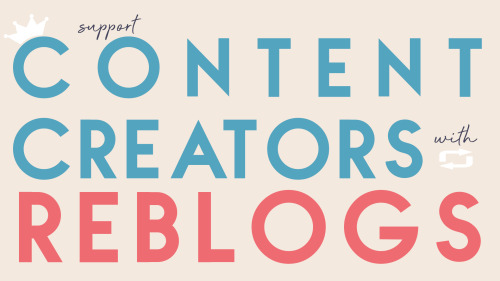
tumblr is not instagram. likes on tumblr, while appreciated, are effectively useless in helping a creator reach a wider audience.
when you like something, it goes into your own personal folder. and chances are good that, even if it’s public, no one will see it.
likes do not get shared to the dashboard, where others can actually see and have the opportunity to engage.
liking a creation only really benefits you, and not the creator or the rest of the tumblr community!
likes are great for bookmarking, saving posts with the intent of a later reblog, engaging with certain posts that don’t need to be shared (ie. personal posts), posts that you are not comfortable sharing, and prepping a queue.
REBLOGGING is the best way to support a content creator!
reblogs boost attention and engagement. it actually allows for that content to be shared with others. which, really, is what tumblr is all about!
tldr; reblogs > likes. please don’t take content creators for granted. this site would be nothing without them!
Stucky
#stucky #steverogers #buckybarnes #avengers
I feel like this song is a great Stucky song. Because it literally uses lines like:
“Tell me it’s not the end of the line”
and
“I won’t let this plane go down”
and
“I wanna turn the clock right back to where it was”
Great Stucky song is all I’m saying.




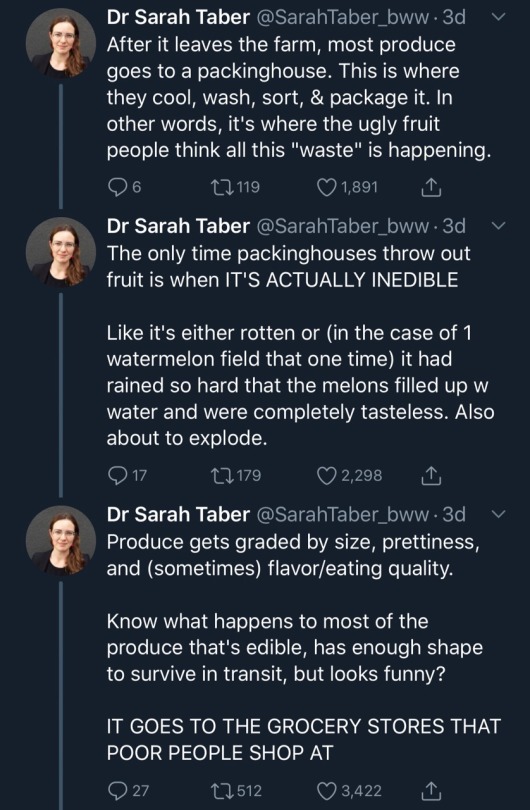


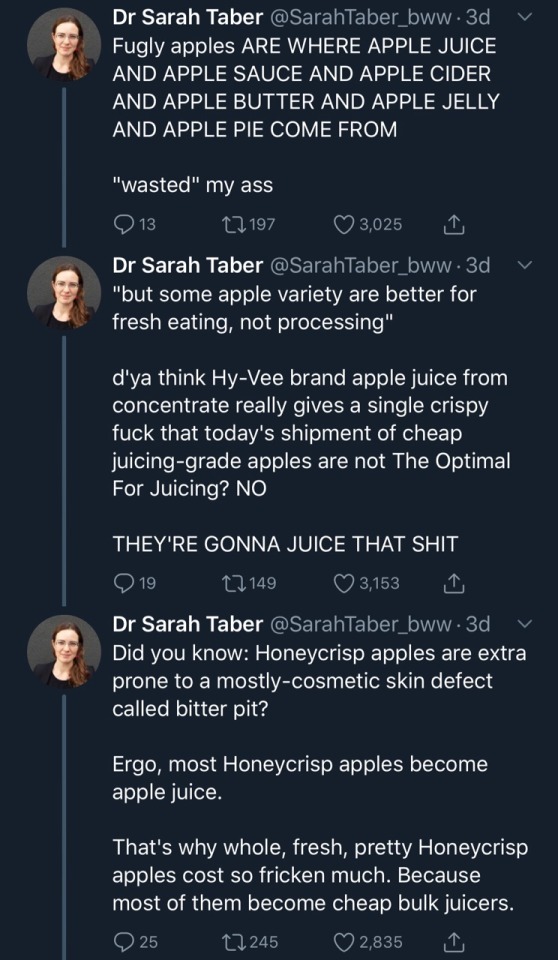
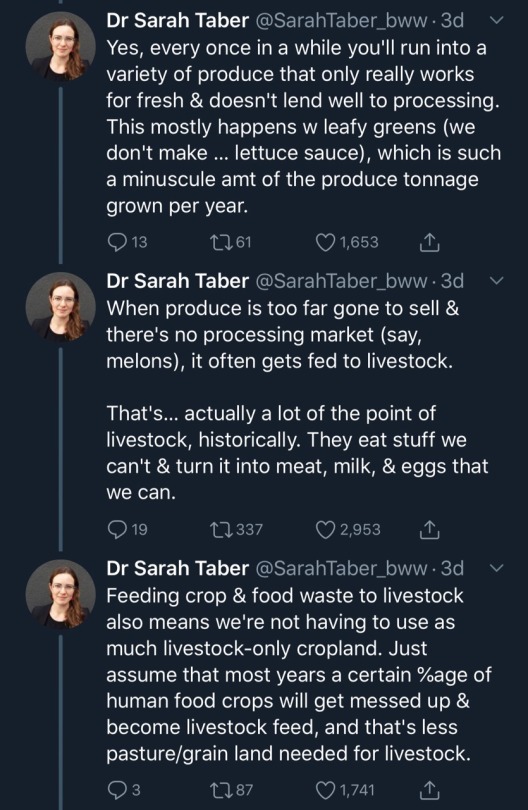
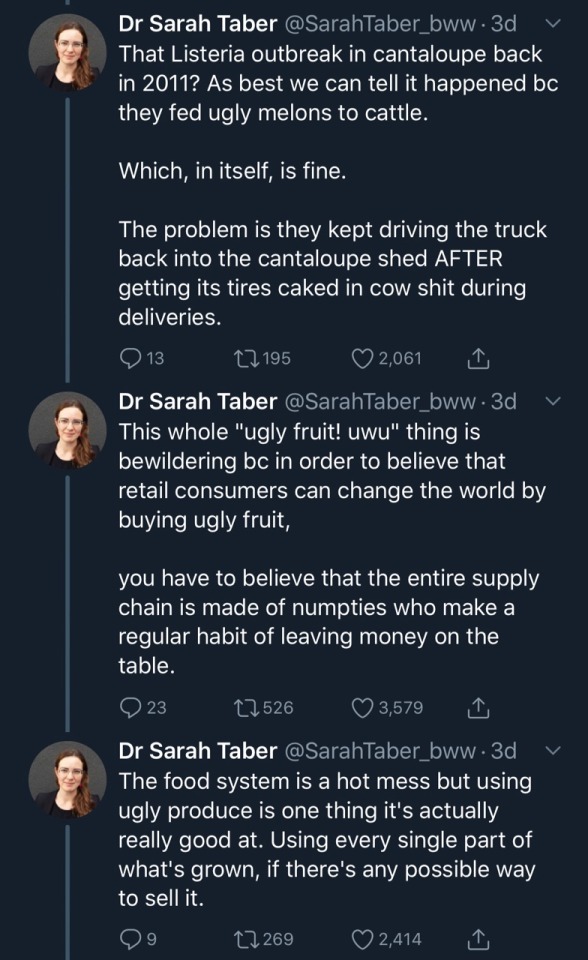
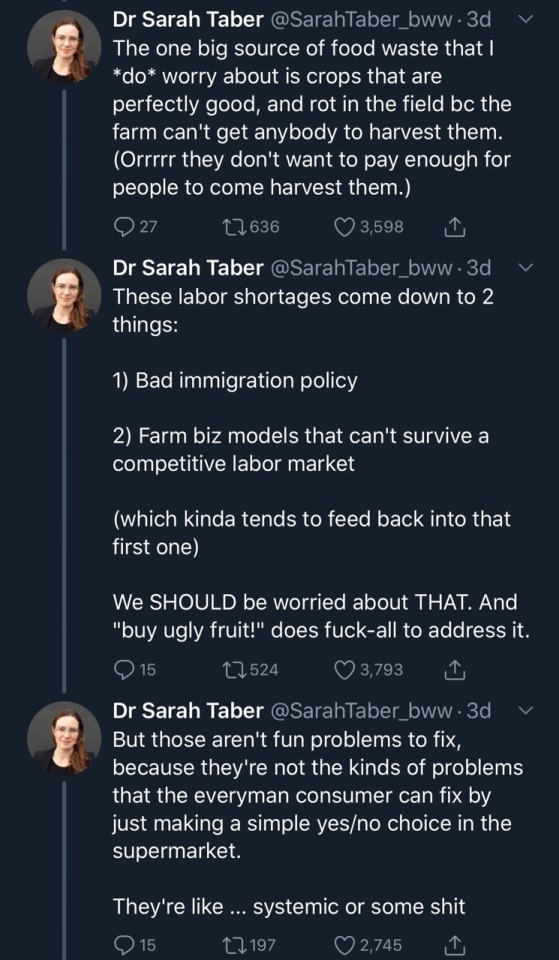
Very informative thread -source
-
 tariakabara liked this · 3 weeks ago
tariakabara liked this · 3 weeks ago -
 deliciousbagelbatpainter liked this · 3 weeks ago
deliciousbagelbatpainter liked this · 3 weeks ago -
 bururaven reblogged this · 3 weeks ago
bururaven reblogged this · 3 weeks ago -
 bururaven liked this · 3 weeks ago
bururaven liked this · 3 weeks ago -
 fool-on-the-hill-24601 reblogged this · 3 weeks ago
fool-on-the-hill-24601 reblogged this · 3 weeks ago -
 fool-on-the-hill-24601 liked this · 3 weeks ago
fool-on-the-hill-24601 liked this · 3 weeks ago -
 aanonymmous liked this · 3 weeks ago
aanonymmous liked this · 3 weeks ago -
 imbibyebi liked this · 3 weeks ago
imbibyebi liked this · 3 weeks ago -
 worldweaverofmediocrity reblogged this · 3 weeks ago
worldweaverofmediocrity reblogged this · 3 weeks ago -
 hlebopeccrb reblogged this · 3 weeks ago
hlebopeccrb reblogged this · 3 weeks ago -
 hlebopeccrb liked this · 3 weeks ago
hlebopeccrb liked this · 3 weeks ago -
 seerya reblogged this · 3 weeks ago
seerya reblogged this · 3 weeks ago -
 murim reblogged this · 3 weeks ago
murim reblogged this · 3 weeks ago -
 readingwithcryptids liked this · 3 weeks ago
readingwithcryptids liked this · 3 weeks ago -
 sitvanit reblogged this · 3 weeks ago
sitvanit reblogged this · 3 weeks ago -
 never2oldtolearn reblogged this · 3 weeks ago
never2oldtolearn reblogged this · 3 weeks ago -
 shiffap liked this · 3 weeks ago
shiffap liked this · 3 weeks ago -
 bookishinbelgium reblogged this · 3 weeks ago
bookishinbelgium reblogged this · 3 weeks ago -
 fyeahdengekidaisy liked this · 3 weeks ago
fyeahdengekidaisy liked this · 3 weeks ago -
 k3lit reblogged this · 3 weeks ago
k3lit reblogged this · 3 weeks ago -
 k3lit liked this · 3 weeks ago
k3lit liked this · 3 weeks ago -
 seethefakemuses liked this · 3 weeks ago
seethefakemuses liked this · 3 weeks ago -
 winniethenooh liked this · 3 weeks ago
winniethenooh liked this · 3 weeks ago -
 tedcruzisthezodiackiller liked this · 3 weeks ago
tedcruzisthezodiackiller liked this · 3 weeks ago -
 thatvampireenthusiast liked this · 3 weeks ago
thatvampireenthusiast liked this · 3 weeks ago -
 thatvampireenthusiast reblogged this · 3 weeks ago
thatvampireenthusiast reblogged this · 3 weeks ago -
 swimmerninja liked this · 3 weeks ago
swimmerninja liked this · 3 weeks ago -
 gretavancreep liked this · 3 weeks ago
gretavancreep liked this · 3 weeks ago -
 thelostpanacea liked this · 3 weeks ago
thelostpanacea liked this · 3 weeks ago -
 onewingedplatypus reblogged this · 3 weeks ago
onewingedplatypus reblogged this · 3 weeks ago -
 caliditz liked this · 3 weeks ago
caliditz liked this · 3 weeks ago -
 crookshanksagentofowca liked this · 3 weeks ago
crookshanksagentofowca liked this · 3 weeks ago -
 andateandante liked this · 3 weeks ago
andateandante liked this · 3 weeks ago -
 scrpturiens reblogged this · 3 weeks ago
scrpturiens reblogged this · 3 weeks ago -
 rcxeira liked this · 3 weeks ago
rcxeira liked this · 3 weeks ago -
 evilsliceofbread reblogged this · 3 weeks ago
evilsliceofbread reblogged this · 3 weeks ago -
 evilsliceofbread liked this · 3 weeks ago
evilsliceofbread liked this · 3 weeks ago -
 tidbitsofwisdomforme reblogged this · 3 weeks ago
tidbitsofwisdomforme reblogged this · 3 weeks ago -
 msshakespeare reblogged this · 3 weeks ago
msshakespeare reblogged this · 3 weeks ago -
 trashrunes reblogged this · 3 weeks ago
trashrunes reblogged this · 3 weeks ago -
 trashrunes liked this · 3 weeks ago
trashrunes liked this · 3 weeks ago -
 readingrobin reblogged this · 3 weeks ago
readingrobin reblogged this · 3 weeks ago -
 umaroth liked this · 3 weeks ago
umaroth liked this · 3 weeks ago -
 thebookwasbetterthough liked this · 3 weeks ago
thebookwasbetterthough liked this · 3 weeks ago -
 madmaddoxflux reblogged this · 3 weeks ago
madmaddoxflux reblogged this · 3 weeks ago -
 thebooky liked this · 3 weeks ago
thebooky liked this · 3 weeks ago -
 horse-shit reblogged this · 3 weeks ago
horse-shit reblogged this · 3 weeks ago -
 i-dont-exis liked this · 3 weeks ago
i-dont-exis liked this · 3 weeks ago
26-year-old Anthro-Influencer Anthropology, blogger, traveler, mythological buff! Check out my ebook on Mythology today👉🏾 https://www.ariellecanate.com/
208 posts
